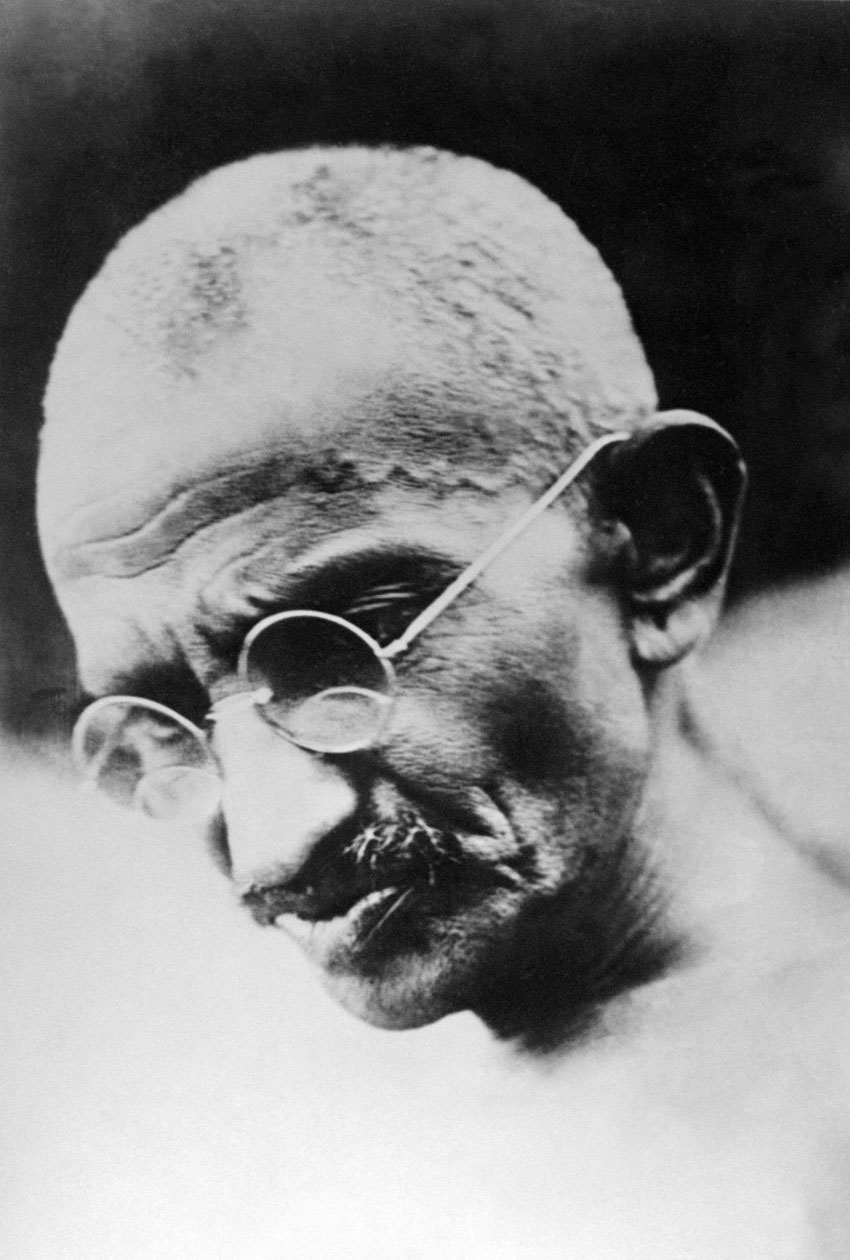Remembering Bapu: Gandhian Prescription for A New World Order
Undated picture made in New Delhi of Gandhi, known as the Mahatma (1869-1948), advocating a policy of non-violent non-cooperation to achieve independence of India. (AFP/Getty Images)
October 2, 2018, marked the 150thJayanti (birth anniversary) of Mahatma Gandhi who continues to be revered in India endearingly as “Bapu,” and the world over as one of the greatest apostles of peace and truth, writes Priyanka Bhardwaj.
On his 70thbirthday the eminent theoretical physicist, Albert Einstein had lavished praise on Gandhi, saying that, “Generations to come, it may be, will scarce believe that such a one as this in flesh and blood walked upon this earth.”
Aptly so, the Indian government is leaving no stone unturned in celebrating his birth anniversary as a grand two-year global exposition, with the first leg of celebrations, comprising cycling competitions, ‘padyatras’ (pilgrimage on foot) and poster stamp competitions, already being kicked off in various parts of the country.
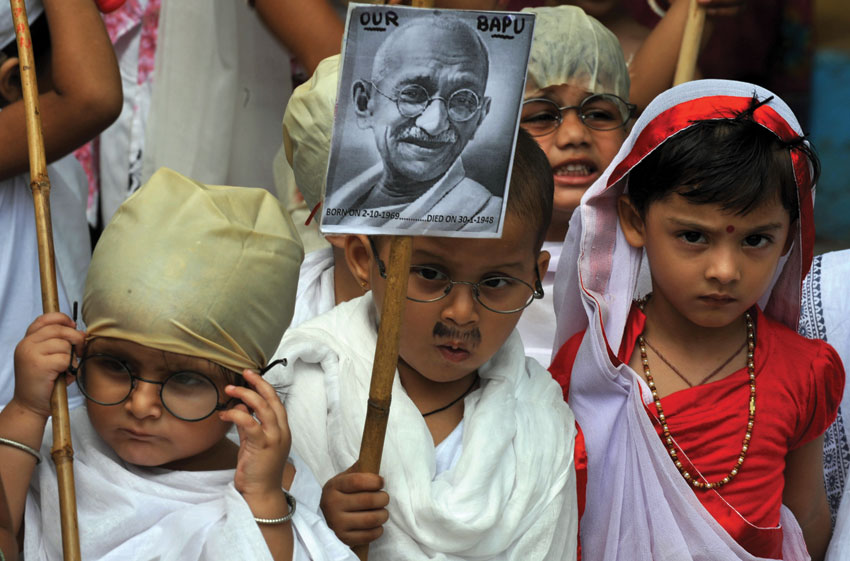
The Ministry of Culture, assigned with the task to shape up plans conceptualized along the spirit of “Karyanjali” or “Gandhi in action,” has convened meetings for arranging a wide range of cultural events intended at re-emphasizing and spreading the message and ideologies of communal harmony, and timeless solutions for all kinds of issues as promoted by the great ‘Mahatma’ (meaning a great soul, a title given by Nobel Laureate Rabindranath Tagore) especially for the benefit of the younger generations.
The extravaganza will be marked by a special Parliament session on Gandhi, academic events across educational institutions, drama series conducted by the National School of Drama, youth exchange programs, ‘mushairas’ (poetry sessions), a four day long Mahatma Gandhi International Sanitation Convention, a theme very close to Gandhi’s heart, among other events, and shall include public participation under the aegis of the sponsorship of the government.
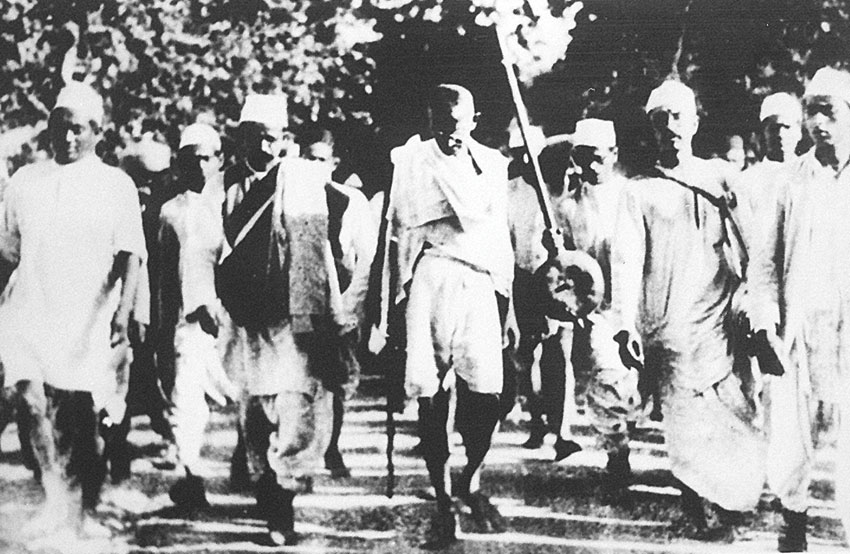
This mission was commenced last May, with the launch of a special logo by President Ram Nath Kovind, who also chaired the meeting of the National Implementation Committee that has proposed cultural and intellectual symposia of international singers, Nobel peace laureates and spiritual gurus delivering talks, shows and the works, display of Gandhi themed tableaux for all states at the 2019 Republic Day parade, and designation of February 22,2019, the 75thdeath anniversary of Kasturba Gandhi, the wife of Mahatma Gandhi, as ‘Kasturba Day.’
At a time when the country has set its ambitions of being a superpower by 2020 and of pursuing close to double digit growth rates, it is also being hounded with the realities of gross inequities, plunging levels of human development indices, mindless consumerism, compromise of moral and political ideals at the altar of individual and sectional interests, along with corruption soaking all layers of system and advent of militant forms of religion, and hence the relevance of Gandhi to contemporary socio-economic-politico fabric that stands as an anti-thesis to his dreams of a free India.
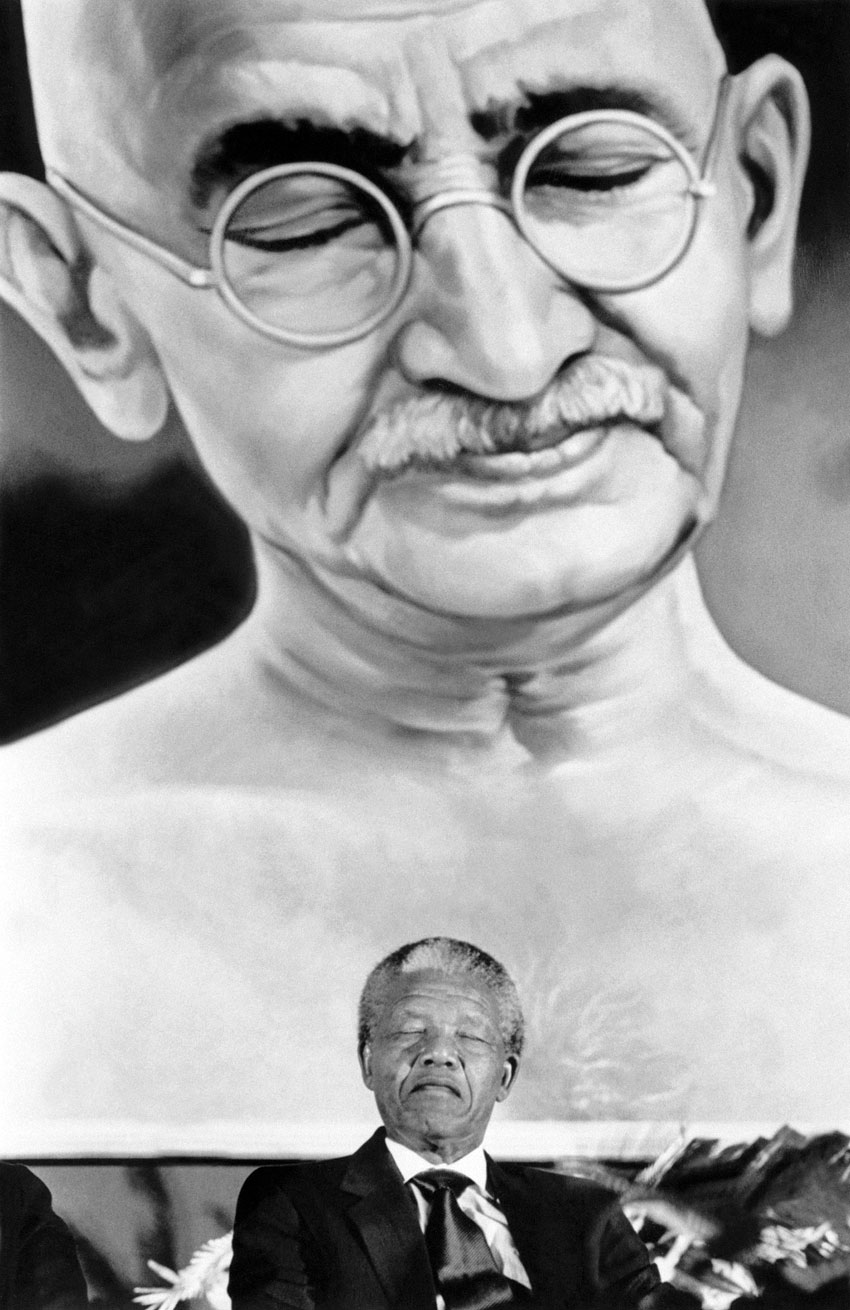
While it may be easy to lose oneself in the maze of ambiguities shrouding Gandhi’s personalities, for his was a life that evoked mixed emotions, or get distracted by the trends of post-modernism, inspiration can be drawn from Gandhi’s strategy of ‘satyagraha’ that is a complex combination of truth, sacrifice, cooperation, and selfless service, and ‘ahimsa’ or nonviolence, that changes the ones facing opposition and brings about a resolution, and can be adopted as a substitute to ‘Naxal Movement’ that has emerged as the greatest internal threat to the country’s existence.
Furthermore, …., to set exemplary personal integrity to inspire immediate colleagues, train committed nation-wide workers, lead a political movement that would end the present corrupt dispensations and outfits, and work for communal harmony based on an amicable compromises, rather than legal interventions therefore achieving communal amity and national integration.
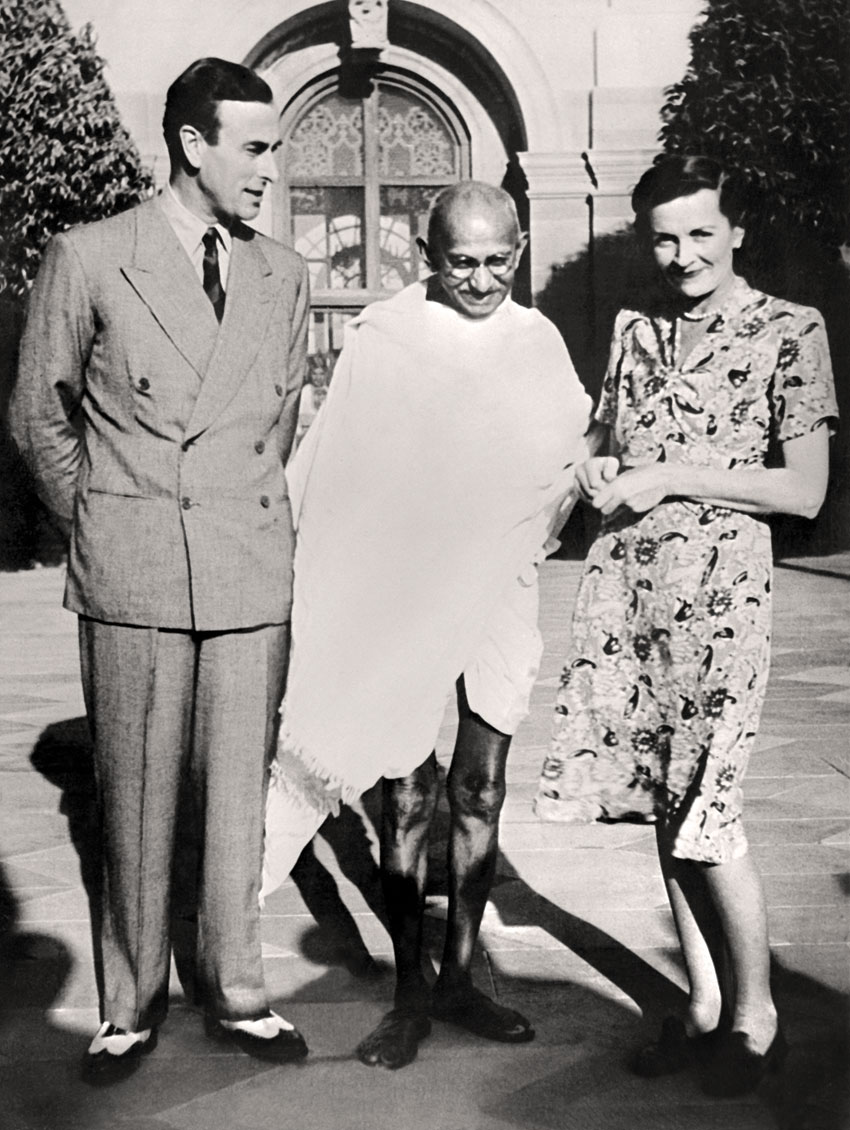
As any form of inequality or injustice was evil to him, this had to be fought with courage and only through moral and non-violent means.
Depending upon varying levels of understanding and application Gandhian tools were adopted by Martin Luther King, M.N. Roy, Anna Hazare in his anti-corruption movement, and other civil society members to different degrees of results.
In the realm of economics too Gandhi proffered his prescription, where supreme consideration was imparted to man over money, a model based on fulfilling needs, promotion of self-reliant, labor-induced locally oriented production, and trusteeship as wealth for greater sustainable, conflict-free development and establishment of strong village republics, all of which clearly stood apart from Western model of accruing dividends.
In a post-digital era, that has transformed the world into a global village it is conceivable to visualize that self-empowerment and self-upliftment are directly proportional to each other.

In terms of automation being small enough to be used by man and entering his home, the miniaturization of laptops to smartphones and gadgets becoming a way of life in the ordinary households are perhaps unwittingly in the direction of Gandhian ideas.
On the subject of wealth creation, if Gandhi was not against its creation, he was certainly opposed to egregious use for personal ends, and this idea that has gripped western billionaires is slowly making inroads in India as our country’s wealthiest billionaires such as Narayana Murthy, Azim Premji and Shiv Nadar, are committing their wealth to philanthropy.
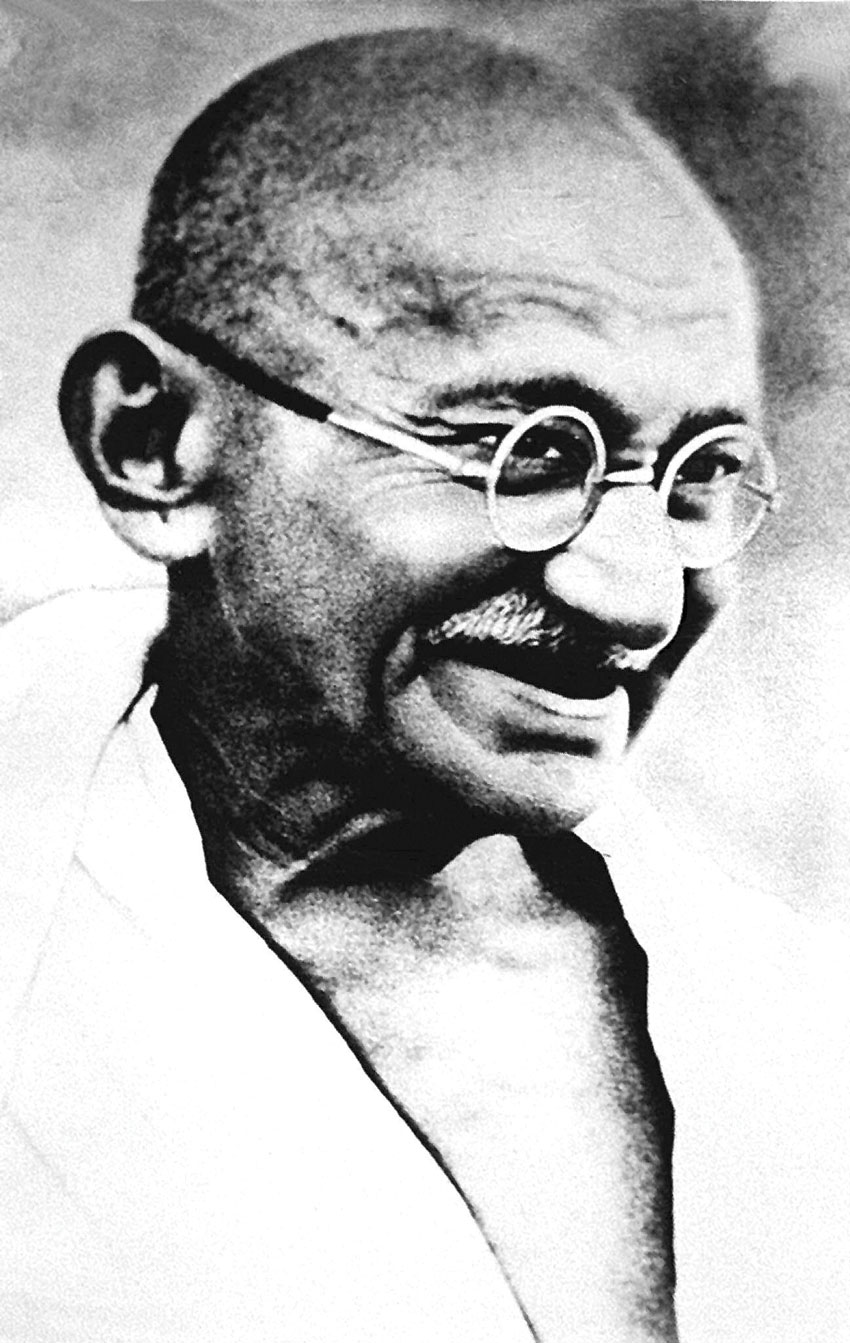
Through all ages India has given a new spiritual thought to the world, be it Yogic system, Buddhism, Jainism, Sikhism and then the spiritual and evolutionary Gandhian thought that are all inclusive and in alignment with the natural order of environment.
In times of similar challenges being faced in almost all parts of the world, Gandhian techniques can emerge as a restorer of balance of reason for the entire mankind, and those who repose their faiths in Gandhi as a man of “true action,” they can move to active and speedy adoption of his tools of peaceful, collective action to become the influencing agents in reforming the world order and attaining spirituality with high technology.
